- Home
- Linda Castillo
Kate Burkholder 2 - Pray for Silence
Kate Burkholder 2 - Pray for Silence Read online
PRAY FOR
SILENCE
ALSO BY LINDA CASTILLO
Sworn to Silence
PRAY FOR
SILENCE
LINDA CASTILLO
MINOTAUR BOOKS NEW YORK
This is a work of fiction. All of the characters, organizations, and events portrayed in this novel are either products of the author’s imagination or are used fictitiously.
PRAY FOR SILENCE Copyright © 2010 by Linda Castillo. All rights reserved. Printed in the United States of America. For information, address St. Martin’s Press, 175 Fifth Avenue, New York, N.Y. 10010.
www.minotaurbooks.com
Library of Congress Cataloging-in-Publication Data
Castillo, Linda.
Pray for silence / Linda Castillo.—1st ed.
p. cm.
ISBN 978-0-312-37498-3
1. Women police chiefs—Ohio—Fiction. 2. Amish—Ohio—Fiction. 3. Families—Crimes against—Fiction. 4. Family secrets—Fiction. 5. Amish Country (Ohio)—Fiction. I. Title.
PS3603.A8758P73 2009
813’.6—dc22
2009046147
First Edition: June 2010
10 9 8 7 6 5 4 3 2 1
For my husband, Ernest.
Always.
Contents
COVER PAGE
TITLE
COPYRIGHT
DEDICATION
ACKNOWLEDGMENTS
CHAPTER 1
CHAPTER 2
CHAPTER 3
CHAPTER 4
CHAPTER 5
CHAPTER 6
CHAPTER 7
CHAPTER 8
CHAPTER 9
CHAPTER 10
CHAPTER 11
CHAPTER 12
CHAPTER 13
CHAPTER 14
CHAPTER 15
CHAPTER 16
CHAPTER 17
CHAPTER 18
CHAPTER 19
CHAPTER 20
CHAPTER 21
CHAPTER 22
CHAPTER 23
CHAPTER 24
CHAPTER 25
CHAPTER 26
CHAPTER 27
CHAPTER 28
CHAPTER 29
ACKNOWLEDGMENTS
The creative side of writing a novel is only part of what it takes to get a book published. I have many publishing professionals to thank for bringing this one to fruition. First and foremost, I wish to thank my agent, Nancy Yost, who has a brilliant creative mind and unparalleled business savvy, not to mention a wicked sense of humor. All are very much appreciated. Thank you to my New York editor, Charles Spicer, whose razor-sharp instincts and editorial genius always make the book better. To my UK editor, Julie Crisp, whose insights, sharp eye for all the details I miss, and undying passion for a good, scary, thriller shine through all the way across the pond. To Allison Caplin, for bringing your own editorial expertise to the book and helping to keep me on track (a full-time job in itself!). Thank you to Andy Martin, for the whirlwind trip to four Ohio cities during the pre-launch tour for Sworn to Silence. It was great fun, and the wine was fabulous. To Matthew Shear and Jennifer Enderlin, for taking time out of your busy schedules to have a drink with me in Washington D.C. and chat about the books—thank you.
I’d also like to extend a big thank-you to all the fine folks at Roasters Coffee and Tea Company in Amarillo; you guys have the best COD in the state of Texas and absolutely no idea how much I appreciate it.
To fellow authors and sisters-in-crime Catherine Spangler and Jennifer Miller; thank you for always being there when I need you most.
Last but not least, I’d like to thank my intrepid critique group: Jennifer Archer, April Redmon, Marcy McKay, and Anita Howard, for making Wednesday nights at Jenny’s both productive and fun as hell. You gals are the best!
Three may keep a secret,
if two of them are dead.
—Benjamin Franklin
PRAY FOR
SILENCE
CHAPTER 1
Officer Chuck “Skid” Skidmore wished he hadn’t indulged in that last cup of coffee. If it wasn’t for the new waitress at the diner, he would have stopped at just one. But damn she was cute. So he’d sat at the counter the entirety of his dinner break and sucked down caffeine like a ten-year-old gorging on Kool-Aid. Brandy obliged by keeping his mug full, and entertaining him with her twenty-something chitchat and a full two inches of jiggling cleavage.
He’d been eating at LaDonna’s Diner every night for two months now, since the chief assigned him the graveyard shift. He hated working nights. He respected the chief, but he was going to have to have a talk with her about getting back on days.
Skid turned his cruiser onto Hogpath Road, a desolate stretch of asphalt bounded by Miller’s Woods to the north and a cornfield on the south side. The cruiser’s tires crunched over gravel as he pulled onto the shoulder. He was reaching for the pack of Marlboro Lights in the glove box when his radio crackled.
“Three-two-four. Are you 10-8?”
Mona was the third-shift dispatcher and his sole source of entertainment—after the diner closed, anyway. She’d kept him from dying of boredom many a night. “Roger that, Dispatch.”
“So did you talk to her?”
“That’s affirm.”
“You ask her out?”
Throwing open his door to keep the smell of smoke out of the cruiser, Skid lit the Marlboro. “I don’t see how that’s any of your business.”
“You’re the one who’s been talking about her for the last two months.”
“She’s too young for me.”
“Since when does that make a difference?”
“You’re tying up the radio.”
Mona laughed. “You’re chicken.”
Wishing he’d never told her about his crush on Brandy, he drew on the cigarette. “Whatever.”
“Are you smoking?”
He mouthed the word shit.
“You said you were going to quit.”
“I said I was going to either quit drinking or smoking. I sure as hell ain’t going to do both in the same week.” He sucked in a mouthful of smoke. “Especially when I’m stuck working nights.”
“Maybe the chief’s still pissed about that old lady you roughed up.”
“I didn’t rough her up. That old goat was drunk out of her mind.”
“She was sixty-two years old—”
“And naked as a jaybird.”
Mona giggled. “You get all the good calls.”
“Don’t remind me. The sight of her wrinkled ass has damaged me for life.” He sighed, his bladder reminding him why he’d stopped in the first place. “I gotta take a piss.”
“Like I need to know that.” She disconnected.
Grinning, Skid got out of the cruiser. The crickets went silent as he walked around to the bar ditch. Dry cornstalks crackled in a light breeze. Beyond, a harvest moon cast yellow light onto the tall grain silo and barn roof of an Amish farm. It was so quiet, he could hear the cacophony of frogs from Wildcat Creek a quarter mile to the south. Skid relieved himself and tried not to think about the long night ahead. Yeah, he was going to have a talk with the chief. Get back on days. He’d had enough of this vampire hours shit.
He was zipping up when a distant sound snagged his attention. At first he thought maybe a calf was bawling for its cow. Or maybe a dog had been hit by a car. But when the sound came again, he realized it wasn’t either of those things. It was a man’s scream. Looking out across the cornfield, he felt the hairs on his nape stand straight up.
Skid rested his hand on the .38 strapped to his hip. He scanned the field beyond where the corn whispered and sighed. Another scream sent a chil
l scraping up his spine. “What the hell?”
Yanking open the door of the cruiser, he leaned in and flicked on the strobes, then pulsed the siren a couple of times. He hit his lapel mike. “Mona, I’m out here at the Plank farm. I’ve got a 10-88.” They used the ten-code radio system at the Painters Mill PD; 10-88 was the code for suspicious activity.
“What’s going on?”
“Some crazy shit’s screaming his head off.”
“Well that’s strange.” She went silent for a moment. “Who is it?”
“I don’t know, but I think it’s coming from the house. I’m going to check it out.”
“Roger that.”
Back in his cruiser, Skid turned into the long gravel lane that would take him to the house. The Planks were Amish. Generally, the Amish were quiet and kept to themselves. Most were up before the sun and in bed before most folks finished their suppers. Skid couldn’t imagine one of them out this time of night, raising hell. Either some teenager on rumspringa—their “running around” time before joining the church—was drunk out of his head, or there’d been an accident.
He was midway down the lane when a figure rushed from the shadows. Skid braked hard. The cruiser slid sideways, missing a man by inches. “Holy shit!”
The man scrambled around the front of the cruiser, hands on the hood, eyes as big as baseballs. Skid didn’t recognize him, but the full beard and flat-brimmed hat told him the guy was Amish. Setting his hand on his .38, Skid rammed the shifter into Park and got out of the cruiser. “What the hell are you doing? I almost hit you.”
The man was breathing hard, shaking harder. In the moonlight, Skid saw sweat glistening on his cheeks, despite the October chill, and he wondered if the guy was high on drugs. “Mein Gott!”
Skid didn’t understand Pennsylvania Dutch, the Amish dialect, but he didn’t need to be fluent to know the guy was terrified. He didn’t know what he’d walked into. The one thing he was certain of was that he wasn’t going to let this cagey-looking sumbitch get any closer. As far as he knew, the guy was on crack and armed with a machete. “Stop right there, partner. Keep your hands where I can see them.”
The Amish man put his hands up. Even from ten feet away Skid could see his entire body was trembling. His chest heaved. It was tears—not sweat—that glistened on his cheeks. “What’s your name?” Skid asked.
“Reuben Zimmerman!” he choked.
The Amish man’s eyes met his. Within their depths, Skid saw fear and the sharp edge of panic. The man’s mouth worked, but no words came.
“You need to calm down, sir. Tell me what happened.”
Zimmerman pointed toward the farmhouse, his hand shaking like a flag in a gale. “Amos Plank. The children. There is blood. They are dead!”
The guy had to be out of his mind. “How many people?”
“I do not know. I saw … Amos and the boys. On the floor. Dead. I ran.”
“Did you see anyone else?”
“No.”
Skid’s gaze went to the darkened farmhouse. The place was silent and still. No lantern light in the windows. No movement. He hit his lapel mike. “Mona, I’ve got a possible 10-16 out here.” A 10-16 was the code for a domestic problem. “I’m going to take a look.”
“You still out at the Plank place?”
“That’s affirm.”
“You want me to call the sheriff’s office and get a deputy out there?”
“I’m going to check it out first. Will you run Reuben Zimmerman through LEADS for me?” LEADS was the acronym for the Law Enforcement Automated Data System police departments used to check for outstanding warrants.
“Roger that.” Computer keys clicked. “Be careful, will you?”
“You got that right.”
Anxious to get to the scene, Skid approached the Amish man. “Turn around and put your hands against the car, partner.”
Zimmerman looked bewildered. “I did not do anything wrong.”
“It’s procedure. I’m going to pat you down. The handcuffs are for your protection and mine. All right?”
As if realizing he didn’t have a choice, Zimmerman turned and set his hands against the cruiser. Quickly, Skid ran his hands over the man, checking pockets, socks, even his crotch. Then he snapped the cuffs into place. “What are you doing here at this time of night?”
“I help with the milking. Work begins at four A.M.”
“And I thought I had bad hours.”
The Amish man blinked.
“Never mind.” Opening the cruiser door, Skid ushered him into the backseat. “Let’s go.”
Sliding behind the wheel, he put the cruiser in gear and started toward the house. In the rearview mirror, dust billowed in the red glow of the tail-lights. Ahead, a massive barn and silo stood in silhouette against the predawn sky. The postcard perfect farm was the last place Skid expected any kind of trouble. He’d lived in Painters Mill for going on four years now. Aside from a few minor infractions—like that time two teenaged boys got caught racing their buggies down Main Street—the Amish were damn near perfect citizens. But Skid had been a cop long enough to know there was always an exception to the rule.
He parked behind a buggy, his headlights reflecting off the slow-moving-vehicle sign mounted at the rear. To his right, the house stood in shadows; it didn’t look like anyone was up yet. Turning, he made eye contact with Zimmerman. “How did you get in?”
“The back door is unlocked,” the Amish man said.
Grabbing his Maglite, Skid left the cruiser. He slid his .38 from its sheath as he started down the sidewalk. Stepping onto the stoop, he banged on the door with the flashlight. “This is the police,” he called out. “Open up.”
That was when he noticed the dark smear on the jamb. He shifted the flashlight beam and squinted. It looked like blood. A handprint. Skid shone the light down on the concrete porch. More blood. Black droplets glittering in the moonlight. Bloody footprints led down the steps to the sidewalk that led to the barn.
“Shit.” Skid twisted the knob and opened the door. His heart rate kicked as he entered the kitchen. He could feel the burn of adrenaline in his midsection. Nerves running like hot wires beneath his skin. “This is the police,” he called out. “Mr. and Mrs. Plank?”
The house was as silent and dark as a 1920s noir film. Skid wished for a light switch and cursed the Amish people’s aversion to modern conveniences. Slowly, his eyes adjusted to the semidarkness. Gray light from the moon bled in through the window above the sink, revealing plain wood cabinets, a bench table draped with a blue-and-white checked tablecloth. A lantern sat cold and dark in its center.
“Hello? This is the police. Anyone home?” Midway through the kitchen, he noticed the unpleasant odor. Not spoiled food or garbage or pet smells. It was more like the plumbing in the bathroom had backed up.
Skid entered the living room. The stench grew stronger, pervasive. A chill crept up his spine when his beam illuminated the body. An Amish man wearing a blue work shirt, trousers and suspenders lay facedown in a pool of blood the size of a dinner plate.
“Holy shit.”
Skid couldn’t look away. The dead man had a horrific wound at the back of his head. Blood oozed from his left ear into his full beard and then trickled down to pool on the floor. His mouth was open and his bloody tongue protruded like a fat slug.
He hoped Zimmerman was wrong about the number of victims. He hoped the other lumps on the floor were piles of clothing in need of mending or maybe feed bags someone had brought in from the barn. That hope was dashed when the beam of his flashlight revealed two more bodies. A teenaged boy wearing dark trousers with suspenders. A little red-haired boy encircled by more blood than could possibly fit into his small body. Both boys had gunshot wounds to the head. Both had their hands bound behind their backs. Skid knew without checking that they were dead.
He’d been a cop for going on ten years, first in Ann Arbor, Michigan, and now here in Painters Mill. He’d seen death before. Traffic accidents.
Shootings. Stabbings. None of those things prepared him for this.
“Holy Christ.” He fumbled for his lapel mike, surprised when his hand shook. “Mona, I’m 10-23 at the Plank place. Call the chief. Tell her I’ve got a major fuckin’ crime scene out here. A shooting with multiple vics. Fatalities.” His voice broke. “Shit.”
“Do you need an ambulance?”
He looked down at the staring eyes and the ocean of blood, and he knew he’d be seeing that image for a very long time to come. “Just send the coroner, Mona. It’s too late to save any of these people.”
CHAPTER 2
I’m caught in that weird twilight between wakefulness and slumber when the phone on my night table jangles. The last time I looked at the clock, it was just after three A.M. A glance at those glowing red numbers tells me it’s now four-thirty. I feel lucky to have gotten a full hour and a half of sleep.
“Burkholder,” I rasp.
“Chief, it’s Mona. Skid says there’s been a shooting out at the Plank farm.”
The words jolt me upright. “Anyone hurt?” I envision an accidental shooting; someone putting a bullet in his foot while cleaning his .30-06.
“He said it was a major crime scene with multiple fatalities.”
Multiple fatalities.
For an instant I think I’ve misunderstood. Then my brain clicks into place, and I get to my feet. “He get the shooter?”
“I don’t know. Skid sounded pretty shook up.”
Four full-time officers comprise my small police force; Skid is one of my most experienced. He’s not the sensitive type nor is he easily rattled, so I know it’s got to be bad. “Get an ambulance out there, will you?”
“Sure. And I called Doc Coblentz.”

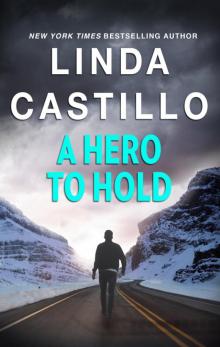 A Hero to Hold
A Hero to Hold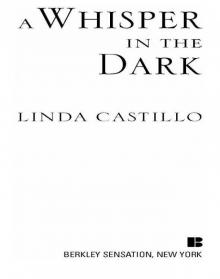 A Whisper in the Dark
A Whisper in the Dark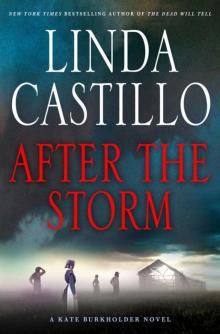 After the Storm
After the Storm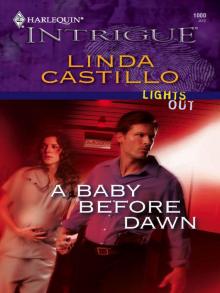 A Baby Before Dawn
A Baby Before Dawn Breaking Silence
Breaking Silence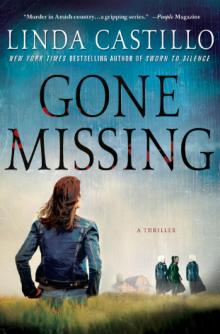 Gone Missing
Gone Missing Long Lost
Long Lost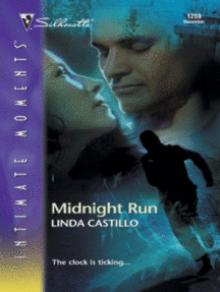 Midnight Run
Midnight Run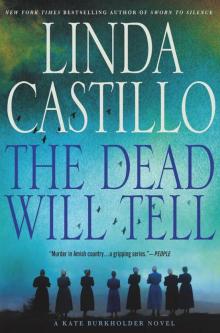 The Dead Will Tell
The Dead Will Tell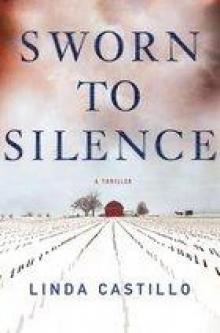 Sworn to Silence
Sworn to Silence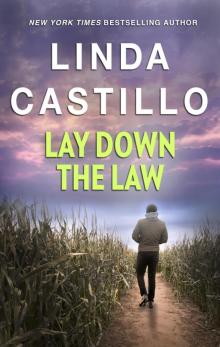 Lay Down the Law
Lay Down the Law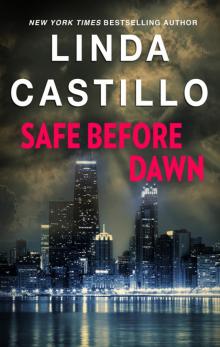 Safe Before Dawn
Safe Before Dawn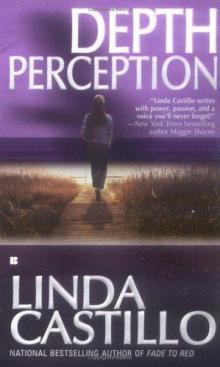 Depth Perception
Depth Perception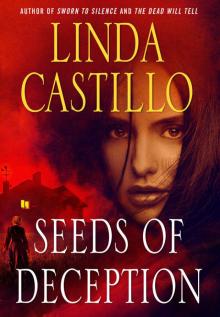 Seeds of Deception
Seeds of Deception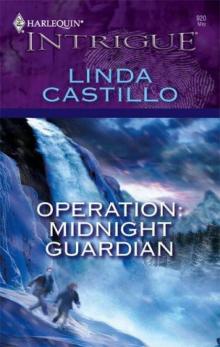 Operation: Midnight Guardian
Operation: Midnight Guardian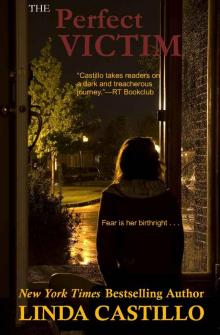 The Perfect Victim
The Perfect Victim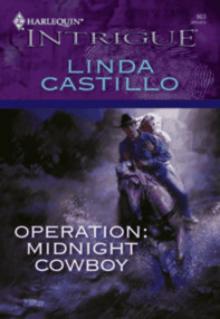 Operation: Midnight Tango
Operation: Midnight Tango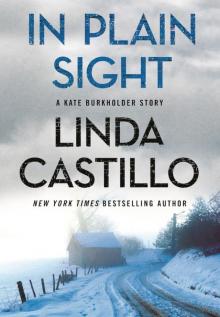 In Plain Sight (Kate Burkholder)
In Plain Sight (Kate Burkholder)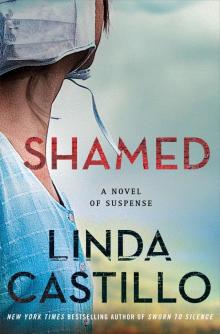 Shamed
Shamed Fallen
Fallen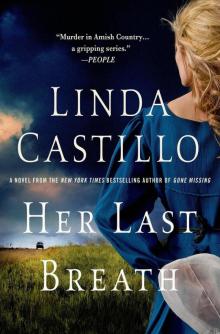 Her Last Breath
Her Last Breath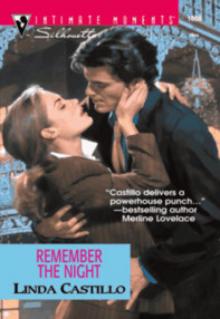 Remember the Night (Men in Blue)
Remember the Night (Men in Blue) Dead Reckoning
Dead Reckoning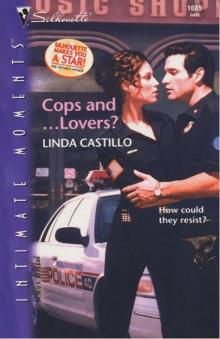 Cops and ... Lovers?
Cops and ... Lovers? The Pact
The Pact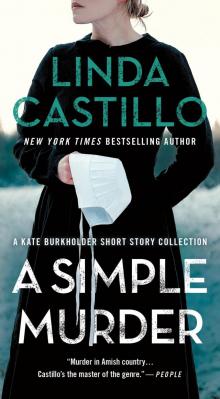 A Simple Murder
A Simple Murder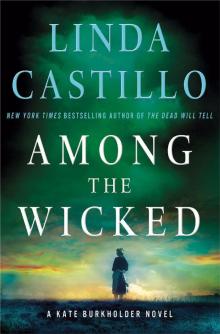 Among the Wicked
Among the Wicked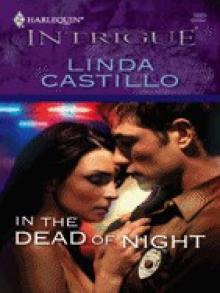 In the Dead of Night
In the Dead of Night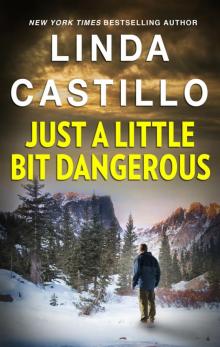 Just a Little Bit Dangerous
Just a Little Bit Dangerous The Phoenix Encounter
The Phoenix Encounter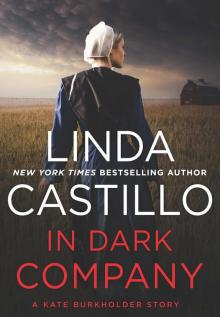 In Dark Company
In Dark Company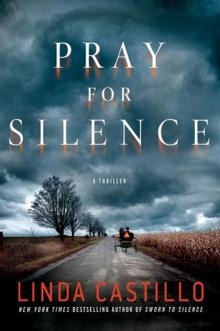 Pray for Silence
Pray for Silence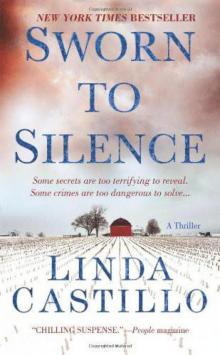 Kate Burkholder 01-Sworn to Silence
Kate Burkholder 01-Sworn to Silence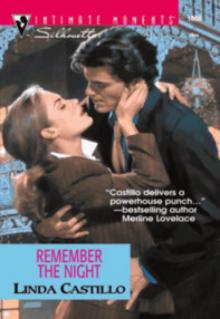 Remember the Night
Remember the Night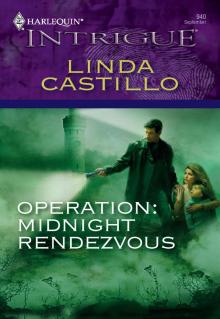 Operation: Midnight Rendezvous
Operation: Midnight Rendezvous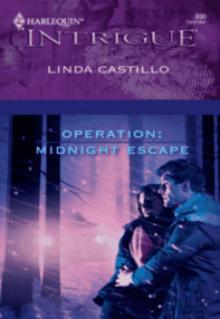 Operation: Midnight Escape
Operation: Midnight Escape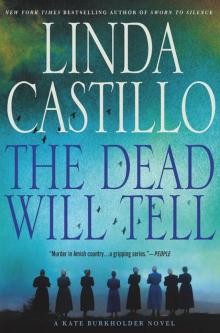 The Dead Will Tell: A Kate Burkholder Novel
The Dead Will Tell: A Kate Burkholder Novel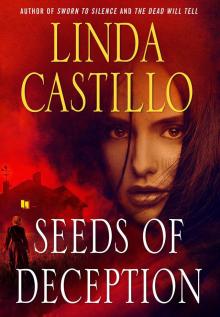 Seeds of Deception: A Kate Burkholder Short Story
Seeds of Deception: A Kate Burkholder Short Story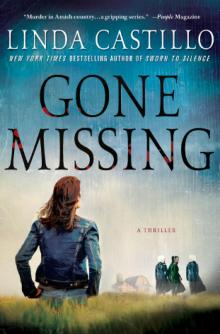 Gone Missing (Kate Burkholder 4) kb-4
Gone Missing (Kate Burkholder 4) kb-4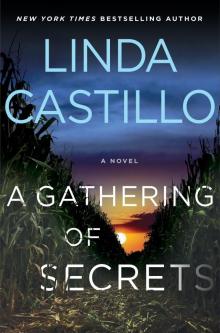 A Gathering of Secrets
A Gathering of Secrets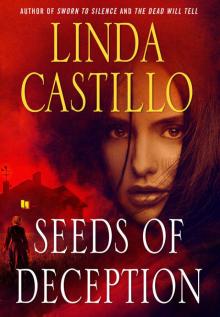 Seeds of Deception: A Kate Burkholder Short Story (Kindle Single)
Seeds of Deception: A Kate Burkholder Short Story (Kindle Single)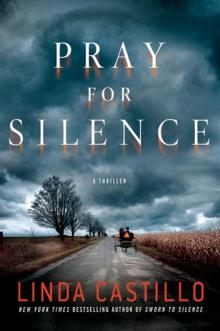 Pray for Silence kb-2
Pray for Silence kb-2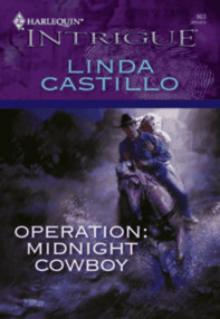 Operation: Midnight Cowboy
Operation: Midnight Cowboy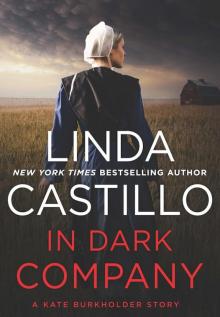 In Dark Company_A Kate Burkholder Short Mystery
In Dark Company_A Kate Burkholder Short Mystery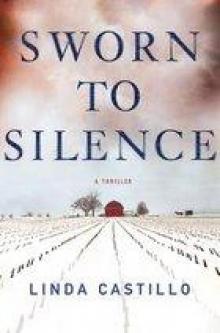 Sworn to Silence kb-1
Sworn to Silence kb-1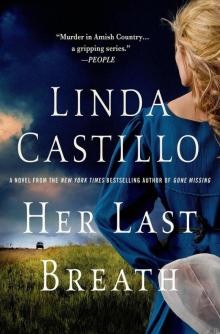 Her Last Breath: A Kate Burkholder Novel
Her Last Breath: A Kate Burkholder Novel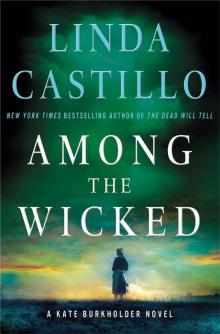 Among the Wicked: A Kate Burkholder Novel
Among the Wicked: A Kate Burkholder Novel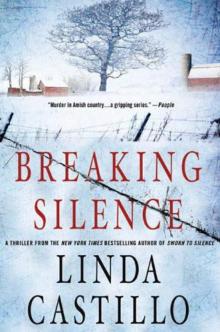 Breaking Silence kb-3
Breaking Silence kb-3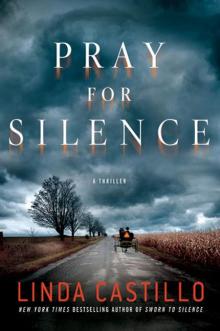 Kate Burkholder 2 - Pray for Silence
Kate Burkholder 2 - Pray for Silence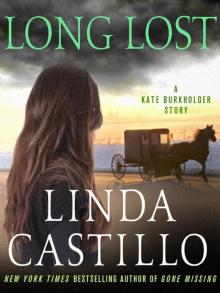 Long Lost: A Kate Burkholder Short Story
Long Lost: A Kate Burkholder Short Story